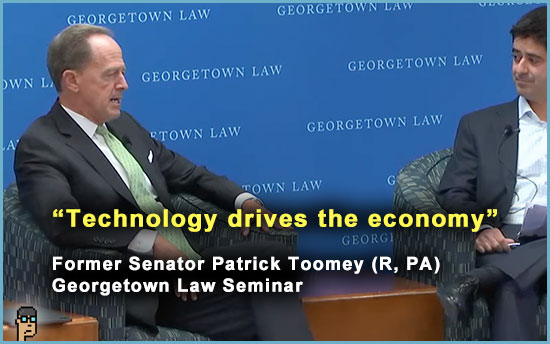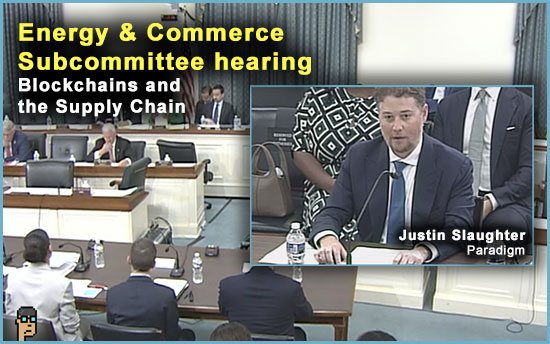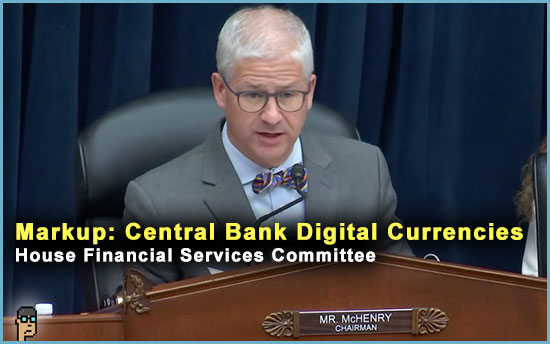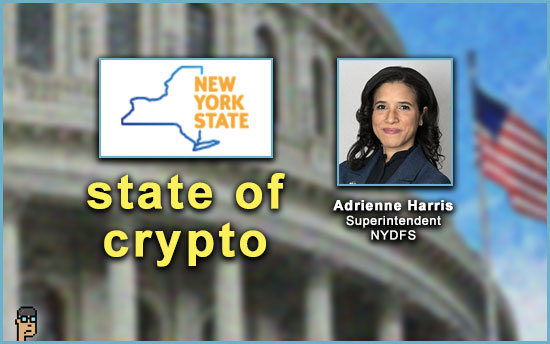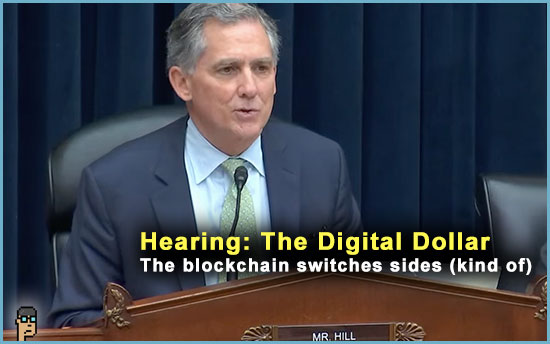maybe next Congress
Former Senator Pat Toomey (R, PA), Ranking Member of the Senate Banking Committee in the last Congress, appeared before an audience at a Georgetown Law Seminar titled, “National Security and Digital Assets Seminar” yesterday. Toomey said he can’t see any crypto legislation making it into the law books until 2025 at the earliest. CoinDesk’s Jessie Hamilton reports, “‘I don’t see a path forward in the Senate, regardless of how the vote goes in the House,’ [Toomey] said, though he thinks a bill on stablecoins would have the best chance.” Read more.
In the interview, Toomey sees broader implications with digital assets starting with national security. He said, “Technology drives the economy” which pays for the nation’s defense infrastructure.
Later, he explained, “From a national security point of view, I want our currency to be the most technologically sophisticated and to me it seems, right now, stablecoins are a way that provides that technological sophistication, gives our money, abilities, capabilities that it doesn’t have today.”
See video of the entire interview with Senator Toomey.
now leaving the U.S.
In an article titled, “Crypto Companies Are Looking Outside the U.S. for Growth,” The Wall Street Journal reviews whether crypto startups are really leaving the United States for friendlier jurisdictions. The WSJ cites: “Crypto venture-capital firm Ryze Labs, payments company Ripple Labs and Zodia Markets, a digital-asset trading platform backed by Standard Chartered, are all focusing outside the U.S. for growth, executives at these companies said.” Read more.
more tips:
Mike Novogratz’s Galaxy Digital targets Europe for crypto expansion – The Financial Times Continue reading “Former Senator Toomey Sees No Path Forward For Legislation In 118th Congress; On Crypto Leaving U.S.”

